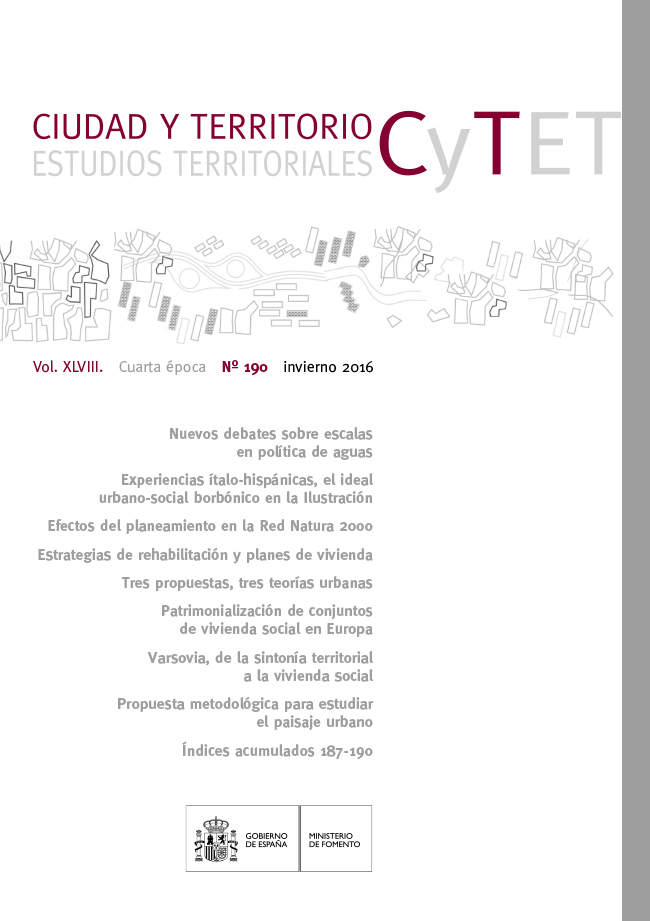The Italian-Spanish experiences of the Bourbon urban-social ideal in the Enlightenment
Keywords:
Enlightenment, colonisation, Bourbons, ideal city, social reformAbstract
Enlightened thought as an intellectual movement which is developed in Europe in the Age
of Enlightenment was the basis of modern critical thought with a global vision due to its application
in many disciplinary areas. From a perspective of social and economic development, many artists
and writers investigated in order to be able to establish an ideal and utopic concept of society and
the city. With the Bourbon dynasty and, mainly, Carlos III, dedicated to this intellectual movement,
progressive reforms and innovative experiences took place in all the territories governed by them.
Thus, curious cases of experiments were carried out which were a turning point in the urban and
social areas, and which today we still find inserted in several landscapes awaiting protection and
revitalising. The Colonisation Towns in Andalusia (the most interesting cases of urbanism in Spain
in the XVIII century according to the academic Chueca Goitia), in the Kingdom of Spain or the colony
of San Leucio in the Kingdom of Naples were experiences which were executed by the sovereigns
themselves and with the same principles, they present numerous, interesting coincidences from a
social and urban point of view.
Downloads
Downloads
Published
How to Cite
Issue
Section
License
Copyright (c) 2016 Carlos Quevedo Rojas

This work is licensed under a Creative Commons Attribution-NonCommercial-NoDerivatives 4.0 International License.
Considering the provisions of the current legislation on Intellectual Property, and in accordance with them, all authors publishing in CyTET give -in a non-exclusive way and without time limit- to the Ministry of Transport, Mobility and Urban Agenda the rights to disseminate, reproduce, communicate and distribute in any current or future format, on paper or electronic, the original or derived version of their work under a Creative Commons Attribution-NonCommercial-NoDerivative 4.0 license International (CC BY-NC-ND 4.0), as well as to include or assign to third parties the inclusion of its content in national and international indexes, repositories and databases, with reference and recognition in any case of its authorship.
In addition, when sending the work, the author(s) declares that it is an original work in which the sources that have been used are recognized, committing to respect the scientific evidence, to no longer modify the original data and to verify or refute its hypothesis. Author(s) also declare that the essential content of the work has not been previously published nor will it be published in any other publication while it is under evaluation by CyTET; and that it has not been simultaneously sent to another journal.
Authors must sign a Transfer of Rights Form, which will be sent to them from the CyTET Secretariat once the article is accepted for publication.
With the aim of promoting the dissemination of knowledge, CyTET joins the Open Journal Access (OA) movement and delivers all of its content to various national and international indexes, repositories and databases under this protocol; therefore, the submission of a work to be published in the journal presupposes the explicit acceptance by the author of this distribution method.
Authors are encouraged to reproduce and host their work published in CyTET in institutional repositories, web pages, etc. with the intention of contributing to the improvement of the transfer of knowledge and the citation of said works.








 Enlace a CyTET en Linkedin
Enlace a CyTET en Linkedin